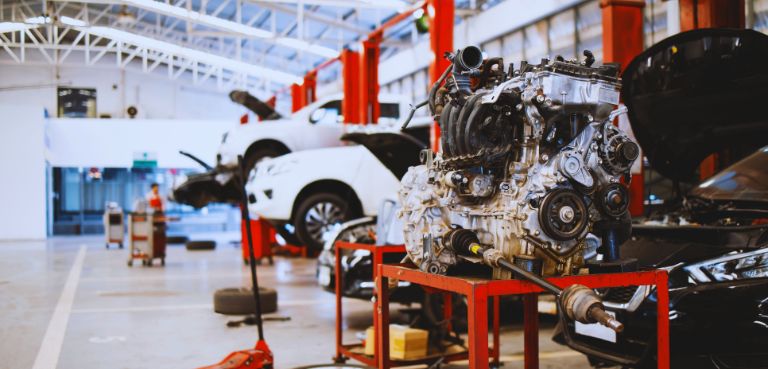The UK car world is changing quickly, and electric cars are a big reason why. New tools and fresh money are helping this change, making 2026 an exciting time for anyone asking, “how do you become a car mechanic?” This job offers a hands-on and satisfying career path. Today’s cars aren’t just about engines—they run on smart software. That means mechanics need both old-style skills and new digital knowledge.

The UK Car Scene in 2026: Big Changes Ahead
The UK’s car world is changing as it moves toward electric cars, helped by big money going into things like charging points. New tools are coming fast, making 2026 a key year for future mechanics. The job now needs a mix of skills—you’ll need basic mechanical skills and also strong digital and thinking skills.
Electric cars are growing fast. In 2026, they may be 23% of all new cars, up from 19.6% in 2024. The UK government wants 28% of new cars to be electric in 2026 and 80% by 2030. To help, they are spending over £500 million to build more charging stations. The aim is to have 300,000 chargers by 2030.
Problems still exist, with private buyers slow to change—only 10% chose EVs in 2024. EVs can cost more at first than petrol cars, but the need for EV mechanics will still grow, even if sales go up and down.
New tech is also changing car repair. Many cars now have smart parts like ADAS, AI, and internet links. These tools help keep cars safe. But they also make it harder to spot problems. New systems can now find and fix issues before they happen, using AI and the internet. This way of fixing things early saves money since unexpected car problems could cost £10–12 billion in 2026.
The industry is putting lots of money into skills. A February 2026 survey shows that top UK car employers are increasing apprenticeships, planning nearly a 16% rise. The government’s 2026 Spending Review is helping with £2.6 billion for green transport, focusing on training and apprenticeships. Big events like Automechanika Birmingham 2026—with over 15,000 visitors and free training in finding faults and EV repair—show how active and ready the sector is for the future.
How Do You Become a Car Mechanic in the UK? Your Training Options
Becoming a car mechanic in the UK has clear paths made for today’s car needs. These routes make sure new mechanics learn the skills that matter right now.
Apprenticeships: Learn and Earn
Apprenticeships are a top choice, letting you get hands-on experience and qualifications without paying for university. You’ll earn a good wage while learning, giving early money freedom and making it a smart option.
Popular apprenticeships in 2026 include:
- Motor Vehicle Service and Maintenance Technician (Light Vehicle Level 3 Advanced Apprenticeship)
- Vehicle Mechanical, Electrical & Trim (MET) Technician
- Heavy Vehicle Service and Maintenance Technician
- Light Vehicle Technician Apprenticeship
These usually last 24 to 36 months. You’ll need GCSEs, mostly in English and Maths. To start an advanced apprenticeship, you usually need 5 GCSEs with grades between 9 and 4 (A to C).
Apprentice car mechanics earn about £13,400 a year. Some jobs in 2026 offer between £14,722.50 and £15,704.
You will learn by working with skilled people and get real experience. You also get a certificate that many employers accept.

College Courses: Structured Learning
College courses give you a clear way to study. You learn in a classroom and also use real tools in a workshop. Colleges now teach new things like electric cars, so you gain skills that will help you for years.
You can take Level 1, 2, or 3 courses in car repair. These teach you how to use tools, stay safe, and understand how cars work—like the engine, wires, and frame.
Entry needs change. Level 1 may not need formal qualifications, while Level 2 usually needs a Grade 3 in GCSE English and Maths. Level 3 often needs a Level 2 car repair qualification. Courses are often free for 16- to 18-year-olds, and adults can get help through things like Advanced Learning Loans.
Key Certifications: Your Professional Stamp
Getting the right certificates helps you get better jobs and shows you have strong skills.
- IMI gives certificates for working on regular and electric cars and for MOT testing.
- City & Guilds give diplomas and training for jobs. They also teach about electric and mixed cars at Levels 1 to 4.
- BTEC (from Pearson) offers Level 3 and higher courses in car repair. These help you find a job or keep studying.
- Affordable CPD courses offer a certificate to show your new skills. This helps you prove to employers that you are learning and getting better, bringing you closer to becoming a car mechanic.
The Modern Mechanic: Skills for Today’s Cars
In 2026, being a car mechanic means more than just fixing parts. Today’s cars are like smart computers, so you need a mix of technical and people skills. Mechanics are becoming “vehicle technologists,” using skills in machines, wires, and software.
Beyond the Spanner: Digital Diagnostics
Modern cars have so much software that just guessing won’t work. Mechanics now use smart tools that do more than show error codes—they give live data and AI help. This market is growing and may hit $42.64 billion in 2026. Mechanics must read this data and fix things before they go wrong, not just after.
Electrifying Your Expertise: EV Specialisation
With EVs growing fast, the need for trained EV workers is big. There may be a lack of 30,000 by 2035. EV training is a must—it keeps you safe around high-voltage systems and often pays more. Key qualifications include IMI Level 1–4 Awards and City & Guilds courses. These teach safety, part names, and how to use special tools the right way.
ADAS Calibration: Smart Car Safety
ADAS features like Lane Departure Warning are now common. After fixing a car, these systems must be reset using tools like lasers for very correct results. The IMI offers ADAS certificates to show your skill in this area.
Soft Skills: More Than Just Fixing Cars
Alongside technical knowledge, soft skills matter more than ever. In 2026, mechanics talk to customers and explain hard systems, so good communication is key.
- Problem-Solving: For finding tricky electric and mechanical issues
- Communication: To explain hard problems in easy words
- Customer Service: A kind, honest approach builds trust
- Teamwork: Good service needs strong working together
- Attention to Detail: Care is key for safety and quality

Industry Outlook 2026: What’s Next for Mechanics
The UK repair world in 2026 is changing fast—bringing new problems but also big chances as repair work moves into software and data.
The EV Revolution: Workshops Must Adapt
With EVs being 23% of 2026 car sales, garages must change. That means buying EV gear, teaching workers about high-voltage systems, and following safety rules. The lack of EV workers makes this a safe, needed job.
Smart Repairs with Data
New cars can send out data to help spot problems early. Mechanics use AI and internet tools to check sensors. This helps fix things before they break and saves money.
Wireless Updates
Car makers now send updates through the internet to fix issues or add features. But mechanics still need to fix things updates don’t help—or may even cause.
New Ways to Fix Cars
New cars use strong stuff, so mechanics need new ways to fix them. They now use things like dent repair without paint, plastic welding, and 3D printing. This helps fix cars faster and better.
Car Cybersecurity: Why It Matters
Cars can now connect to the internet, which means they can be hacked. Mechanics need to learn how to protect car data and spot problems. More training is now there to help.
Car Mechanic Pay in the UK (2026)
In 2026, pay depends on your skills, time in the job, and where you work. If you train to work on electric cars, you can earn more.
Average Earnings: From Apprentice to Pro
The average UK car mechanic earns £32,400 before tax per year, or about £2,150 after tax each month.
- Apprentice: £13,400 per year
- 0–3 years experience: £13,400
- 4–9 years: £29,200
- 10–20 years: £38,900
- Senior/Master Techs: £45,000+
The EV Technician Advantage: Higher Pay
EV workers earn more because of the skill gap. Electric Car Mechanics earn about £34,000, and EV Technicians around £35,000. Skilled workers can reach £43,500 or more, with top pay going up to £55,000—showing how needed these skills are.
Regional Variations and Other Factors
London pays the most, with around £650 a week for techs—but it also costs more to live there. Wales is the lowest, with pay around £29,721. Working for yourself can raise your income to about £35,000, depending on what kind of work you do and who your clients are.
Career Progression and Specialisations
This field has many paths, letting you shape your job as you grow. This variety makes the job safe and exciting for the long term.
Beyond the Workshop: New Roles
With time, you can move up into roles like Senior Mechanic, Workshop Supervisor, or Garage Manager. You could also become an MOT Tester with the right IMI certificate. Other options include Roadside Help Technician or starting your own mobile repair business or garage.
Emerging Specialisations: High-Value Roles
Focusing on a niche can lead to high pay, especially for EV Technicians and Automotive Software Engineers. As tools grow harder to use, workers who keep learning will do well.
- Advanced Diagnostics Technician: Finds tough problems using top tools
- Motorsport Engineering: Works on race cars—even Formula 1
- Automotive Engineer: Designs and checks cars; needs a degree or degree apprenticeship; pays £45,000–£70,000
- Automotive Software Engineer: One of the highest-paying jobs; works on EV and self-driving car systems; pays £50,000–£85,000+
Driving Your Future: Become a UK Car Mechanic Now!
The UK car world in 2026 is full of life. It’s not stuck in the past—it leads in tech and green ideas.
Becoming a car mechanic today is a smart move for the future. With EVs and smart tools growing fast, skilled workers are needed more than ever. This change makes mechanics more important than ever, with a steady need for good skills.
Always learning is the key to staying ahead. Getting qualified is just the start. The push for “green growth” means learning more is a must. Mechanics who keep going become lifelong learners—always at the front of the field.
The job pays well—from good apprentice wages to high pay for EV techs. If you love cars, like solving problems, and want to keep learning, 2026 is your year to become a UK car mechanic. The industry is ready for your skills. Hope you’ve found your answer to “how do you become a car mechanic?”
Enrol in School of Health Care’s Car Mechanic Training to learn all the basics of being a car mechanic and start your journey.



